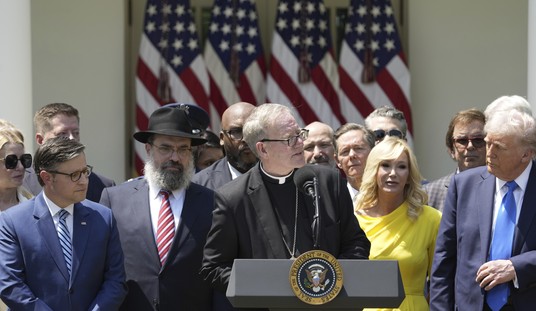Capitalism and racism go together?
I hear it all the time.
"Racism is intricately linked to capitalism," says famous Marxist Angela Davis. "It's a mistake to assume that we can combat racism by leaving capitalism in place."
"Anti-racist" activist Ibram X. Kendi says, "In order to truly be anti-racist, you also have to truly be anti-capitalist."
This is just silly.
In my new video, Swedish historian Johan Norberg explains how free markets discourage racism.
Capitalists make a profit by serving their customers. The more customers they please, the more money they might make. It hurts the bottom line to exclude any groups.
"Look around the world," says Norberg, "The least racist societies with the fewest expressions of racist attitudes are the most capitalist countries."
Norberg's new book, "The Capitalist Manifesto," highlights a Journal of Institutional Economics study that found a correlation between economic freedom and "tolerance of ethnic groups."
"Capitalism," he says, "Is the first economic system where you only get rich by opening up opportunities for others. It pays to be colorblind. It pays to be open to willing customers and workers who could enrich your company no matter what religion or race. ... It doesn't mean that every person will be colorblind. There will always be idiots. But in capitalism, it's costly to be an idiot."
He reminds us that in the Jim Crow South, businesses fought racism, because the rules denied them customers.
"It's often forgotten that owners of buses, railways, streetcars in the American South didn't really segregate systematically until the late 19th century," says Norberg. "It was probably not because they were less racist than others in the South, but they were capitalists. They wanted money, they wanted clients, and they didn't want to engage in some sort of costly and brutal policing business in segregating buses."
Recommended
Even when segregation was mandated, some streetcar companies refused to comply. For several years after Jim Crow laws passed, Black customers sat wherever they wanted.
Norberg adds, "Those owners of public transport, they fought those discriminatory laws because they imposed a terrible cost. ... They tried to bypass them secretly and fight them in courts. They were often fined. Some were threatened with imprisonment."
The streetcar company in Mobile, Alabama, only obeyed Jim Crow laws after their conductors began to get arrested and fined.
Those business owners may have been racist -- I can't know -- but they fought segregation.
"We got Jim Crow laws," says Norberg, "Because free markets weren't willing to discriminate."
Capitalists cared about green -- not black or white.
Free markets all over the world coordinate and cooperate. Many don't know of each other's existence, and if they did meet, they might not get along. But they work together in search of profit.
It's odd that socialists now call capitalism racist, when the opposite is more often true.
The Soviet Union invited African students to study science in major cities. But "Soviet citizens often treated the Africans in their midst with disdain and hostility," New Lines Magazine describes. Russian children's books portrayed Blacks in animalistic ways. Name-calling was common.
Today, China and Cuba claim to have "zero-tolerance" for racism, but during the Covid pandemic, authorities forcibly tested Blacks and ordered strict isolation. Landlords evicted African tenants. Businesses often refused to serve them.
In Cuba, Castro insisted he would eliminate racism. But "Racism persists," reports France 24, saying it's "banned by law," but "alive on the streets ... In local jargon, a white woman with a black boyfriend is ... 'holding back the race.'" Cuba's government is still instituting programs to "combat racism."
It's capitalism that makes people less racist.

























Join the conversation as a VIP Member